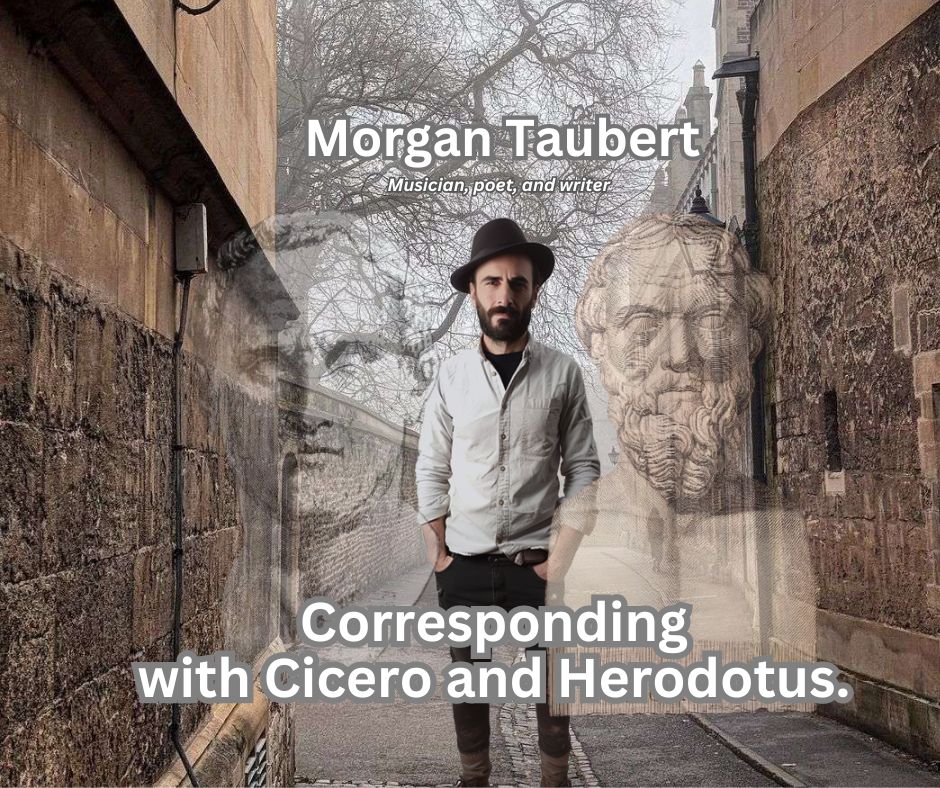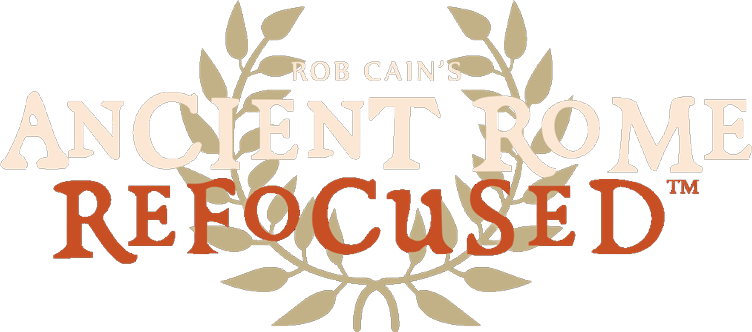
By Morgan Taubert, South Australia, Adelaide
Dear reader,
I met Cicero and Herodotus on the same day, sometime during my 38th year. Seated beside each other on the bookshelf, they looked out at me across the busy marketplace just beyond the wooden framework of their home.
I had never even heard their names before. I was ignorant of their stories, their fame, their reputations.
It’s been six years now since we met, and our friendship influences me every day. I have corresponded with them at great length concerning their lives and written works, I talk with my friends, relatives, acquaintances and even strangers about they things these two great writers have given me.
Cicero’s letters let me see inside the epic story of the fall of the Roman Republic. Inside the story. Not a historian’s perspective, a participant’s. Not just a participant, but the account of someone who ‘lost’ the struggle. Killed by his enemies as he tried to flee his homeland, Cicero disproved the adage, ‘history is written by the winners’.
I read his books on history, oratory, politics, religion and philosophy. I read books about his books on history, oratory, politics, religion and philosophy. I wrote him letter after letter, asking questions, sharing stories, discussing our mutual interests and troubles.
Friends can be found everywhere when you look out for them.
Herodotus; what can I possibly say about the father of history? It’s like his book contains the seeds of every single story ever told. Romance, adventure, war, tragedy, intrigue, royal schemes and military strategies, friends and enemies, natural science, religion, politics, speculative theories. There is no end to what is contained in that book of his.
A friend of mine once suggested that when looking up at the night sky, to not look ‘up’, but to look ‘down’, as if you were staring into deep water.
Reading Herodotus is staring into deep history, and just like staring at the darkness of space, the limits of our vision are not the limits of reality. Herodotus points the way deeper, the limits of his book are not the end of history, only the visible edge.
I talk with him about impossible things, we play a game of outrageous lies, each story more unbelievable. We laugh at the coincidences of history, the parallels, the rhyming slang that sometimes makes us weep, sometimes smile. The story of the human race is incomprehensible, and with Herodotus as my friend, I can face that. I can accept the weird, wild truth of chaos.
So for six years I’ve counted these two as my close friends. Each day I admire them for their faults and virtues. Each day I consider their stories and how they can help me understand the stories of my own time. They are not alone among my many dead friends, you probably know them too. Plato, Aristotle, Julius Caesar, Xenophon, Seneca, Epictetus, Marcus Aurelius, and of course Plutarch.
I could go on about Plutarch…
Post Script: I’m writing an illustrated novel…
It began with Xenophon. The story he tells of the ghost city built by unknown hands, a monument to unknown glory, an empire sinking into the sand, name misremembered. Xenophon called the city Mespilia.
In truth, it was Ninevah.
Desolate Ninevah, who shall bewail her?
Only two hundred years after the fall of the Assyrian Empire, people lived in the ruins of the great city, but they did not know the name Assyria. The Assyrian Empire had ruled for seven centuries.
In the absence of libraries, in the absence of oral historians, in the absence of memory, how quickly even the mightiest of human achievements sink away into the void. A greater miracle perhaps is that many centuries later, the truth of that city was restored to human memory, and now, I can think and write on this beautiful mystery.
What will our descendants think of us? What will they know? If only 5% of ancient literature has survived to the modern day, what will remain of our own age, 2000 years from now? What will remain of Xenophon’s writing, 2000 years from now?
When will the names of our cities be forgotten?
—
I’m writing a novel set in this sort of mystery. The tale follows a young man trying to learn the hidden story of his mother’s life, after she has died. I’m personally fascinated by the way the living relate to the dead, the way that stories of the past influence our choices and ideas.
The way we see the past governs the way we see our future.
But, History is a set of lies, agreed upon, as Napoleon put it.
At the very least, history seems to be a collection of stories that we tell each other in changing ways around an every burning campfire. So, I’m writing a novel about the mystery of the past, even the mystery of our own births, our own lives. It’s a book full of pictures and writing and travel in a world familiar yet strange.
Just like our own.
https://www.letterstocicero.blogspot.com
https://www.patreon.com/zebulonstoryteller
.




